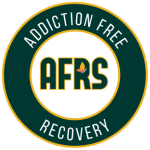Introduction to Meditation in Addiction Recovery
The process of curing an addiction is rather long and, at times, complex as it calls for a lot of mental and emotional strength. Today, traditional approaches such as therapy, support groups, and medication have become standard, but many are increasingly discovering profound benefits in including meditation as part of their recovery plan. Meditation is much more than a relaxation technique known to help gain control over thoughts, resist cravings, and achieve emotional stability.
Mindfulness in recovery is a recent development, particularly in helping people create long-term change by teaching them to become more present and self-aware. Meditation for addiction recovery proves to be a widespread phenomenon because of its potential to accompany or complete other addiction recovery tools and to constitute overall well-being. Whether you are meditating for the first time or it has become a longtime routine, meditation can bring many benefits that may be crucial in changing your life.
Why Meditation is Effective in Addiction Recovery
Meditation is not about sitting silently but giving space to be aware and gaining control of your mind and emotions. A very significant concept in addiction recovery is managing the mental and emotional cues that feed the addictive behaviors, and one of the toughest challenges that people face while recovering from addiction. Mindfulness in recovery helps people learn these tools to keep themselves grounded and focused, which becomes essential in handling those triggers.
Meditation helps build emotional resilience by enabling one to respond rather than react to emotions. When addicted, you find that feelings such as stress, anxiety, and depression are most likely leading factors to a relapse. Meditation gives room to sit with these feelings without sitting on them as a guide for behavior. In this regard, it provides mental preparation, training individuals on how to remain uncomfortable without resorting to chemicals or self-destructive behaviors.
One of the benefits of meditation for addiction is that it teaches him to step aside and observe his thoughts without judgment. Gradually, it gathers self-awareness, breaking the addiction patterns that compulsively cause the individual to engage in addictive behaviors. In addition, meditation provides a space where people orient themselves with the present moment and reduce the mental chatter that often leads people into cravings and urges.
Types of Meditation Techniques for Recovery
Meditation is most definitely not a one-size-fits-all practice. Each practice is tailored to provide unique benefits for specific individuals in recovery. At any given point in the process, these practices can be very effective for people in addiction recovery.
Mindfulness Meditation
The heart of Meditation practices for addiction recovery lies in mindfulness meditation. Mindfulness meditation teaches an individual to focus on the current moment while watching thoughts, feelings, and physical sensations without judgment. Individuals in recovery will learn to recognize cravings and urges that occur without giving in to these cravings by practicing mindfulness. It helps break the patterns of the automatic response mechanism that creates addictive behavior.
Guided Meditation
Guided meditation can be of great advantage to the new. Guided sessions are accompaniments with a teacher or an audio recording. Such sessions may comprise visualization techniques, positive affirmations, or breathing exercises to help people focus their minds and calm down. Guided meditation is of great use for those individuals who are still newcomers in recovery and need extra help focusing on the time in meditation.
Loving-Kindness Meditation
Loving-kindness meditation is developing feelings of love and goodwill for oneself and others. Recovery can be an incredibly therapeutic experience through loving-kindness meditation. Addiction often stems from deep-rooted shame, guilt, or self-hatred. This type of meditation practice balances those feelings by having one cultivate goodwill and kindness toward themselves. This is a fantastic tool for healing emotional hurts and repairing relationships damaged by addiction.
Yoga and Movement Meditation
Movement-based meditation or yoga is an excellent substitute for people who cannot sit still for a time. Introducing physical movement with mindfulness can rid the body and mind of tension. Movement-based meditation practices include very nice-to-have yoga, tai chi, or walking meditation, which help balance the body and mind to relax and balance emotions. These practices are very effective for those who need to deal with the physical as well as mental recovery of addiction.
Benefits of Meditation in Overcoming Addiction
Meditation is beyond a relaxing exercise; it has many benefits that can significantly support recovery. Some of the main benefits that meditation in recovery from addiction offers include the following:
| Benefits | Description |
Reduced Stress and Anxiety | Lowering stress and anxiety levels is one of the greatest Benefits of meditation for addiction when it comes to addiction. Being a common trigger for relapse, through meditation, people can learn a method of controlling those feelings. The calmness of the mind, with an alignment with the present, means that stress levels go down, anxiety decreases, and balance is achieved emotionally. |
Emotional Control | Addiction commonly involves emotional dysregulation. That is, it may indicate an inability to regulate feelings effectively. Normally, substances are sought to dampen the moment’s pain or blunt feelings otherwise. Meditation has increased emotional regulation by enhancing awareness of emotions and thought processes to respond more thoughtfully or intentionally. This increased emotional regulation tends to greatly reduce going to addictive substances during times of heightened stress or turmoil. |
Better Concentration and Clarity | Concentration and mental clarity improve through meditation, which is very vital in addiction recovery. The mind focuses on thoughts and actions instead of drifting off into detested thought patterns when being mindful. Enhanced focus keeps the individual devoted to the recovery goals and also makes it easy to shun triggers that could trigger a relapse. |
Enhanced Self-Awareness | Self-awareness plays an important role in recovery from addiction. To have the person break free from the cycle of addiction, they must acknowledge why they are falling into addictive behavior. Meditation encourages one to be more self-aware, as one considers thoughts and emotions without judging oneself for them. Self-awareness helps them look out for triggers and find better ways to cope. |
Increased Patience and Tolerance | Recovery doesn’t go smoothly; one needs patience and perseverance, and meditation is a great tool for training such qualities. Meditation instructs people to sit calmly with difficult emotions and avoid impulsive reactions; it trains greater tolerance for discomfort. Such increased patience can help best at times of craving or emotional distress. |
How to Incorporate Meditation into Daily Recovery Practices
Add meditation to the daily activities of recovery without adding complexity. The simpler you make it, the better you will use it. Here are a few examples of how to involve meditation in the recovery routines of every day:
Start Small
If you’re just starting out with meditation, start with five minutes a day. Choose the right time each day to do it and slowly increase the time as you feel comfortable. It’s not about sitting there for hours; it’s about habit.
Create a Ritual
Secondly, meditate regularly. Dedicate a space and time for meditation practice. It may be during the morning hours right before you begin the day, or the evening hours, right before sleep. The bottom line here is that your environment has to be distraction-free. You need an area where you will focus entirely on the task.
Combine Meditation With Other Recovery Tools
The greatest thing about meditation is that it will complement the recovery tools: therapy, 12-step programs, and support groups. Meditation can easily find its place in the existing flow of your recovery routine by doing it either after or before therapy sessions or support group meetings. You will be able to process what was learned in therapy and remind yourself of your commitment to being sober.

Use Technology
There are many apps and online tools to assist in meditating. Apps such as Headspace, Calm, and Insight Timer can hold users to the track through guided meditation sessions. This kind of resource is also highly valued for beginners, as it offers much-needed structure and guidance.
Real-Life Success Stories of Meditation in Addiction Recovery
Most people have found incredible success in including meditation in their recovery journey. Success stories give evidence of the powerful impact meditation can have on addiction recovery.
For example, the tale of John, who went on for years failing with alcohol and finally did rehab and worked through several therapeutic approaches until he got to meditation and developed a daily mindfulness meditation practice. He gets better at resisting compulsions and negative emotions. Such a thing began to show a mental shift into greater control over unfolding thoughts and behavior. In a method of note and one that continues to grow in importance, John attributes long-term recovery in part to meditation.
Stories like John’s speak to the power of Meditation for addiction recovery through recovery, offering the possibility to break free from those chains of bondage and instead build a healthier, more mindful way of life.
Tips for Starting a Meditation Practice During Recovery
You don’t have to feel intimidated to get a meditation practice started. Here are some helpful tips to get you on your way:
- Be gentle with yourself. Meditation takes time to practice. Do not expect overnight changes.
- As a beginner, use guided meditations. These will keep you on track and give a framework for your practice.
- Start small. Five minutes of practice daily is enough to start seeing changes from meditation practice.
- Monitor your progress. Keep a journal of your meditation experiences and how they affect recovery.
- Join a group. If you cannot keep yourself motivated, you could join a group that practices meditation or get a meditation partner.
The Lasting Impact of Meditation on Recovery
Meditation is a powerful tool that can support individuals throughout their addiction recovery journey. By incorporating meditation into your daily routine, you can experience improved emotional regulation, enhanced self-awareness, and a greater sense of peace. Mindfulness in recovery allows you to stay grounded, reduce stress, and prevent relapse by helping you manage triggers and cravings.
While meditation alone may not be the answer to addiction recovery, it is an invaluable part of a comprehensive recovery plan. By making meditation a regular part of your life, you can build a stronger foundation for lasting recovery and a healthier future.

FAQs
- How long do I need to meditate each day to see benefits in addiction recovery?
The amount of time spent meditating can vary depending on your preferences and needs. However, even short sessions of 5-10 minutes a day can provide significant benefits in addiction recovery. As you become more comfortable with the practice, you can gradually increase the duration. The key is consistency, so practice daily to experience lasting results.
- Can meditation completely replace other addiction recovery tools like therapy or support groups?
Meditation is a powerful complement to other addiction recovery tools, but it is not a substitute for traditional recovery methods like therapy or support groups. Meditation can enhance the effectiveness of these tools by helping you manage stress, increase self-awareness, and regulate emotions, but it should be integrated into a comprehensive recovery plan. Always consult with a recovery professional to create a personalized approach.
- I’ve never meditated before. How do I get started?
If you’re new to meditation, start with guided meditation sessions. Many apps and online resources, such as Headspace, Calm, or Insight Timer, provide beginner-friendly guidance. Begin with short sessions (5-10 minutes), focusing on your breath and allowing yourself to relax. As you progress, you can explore different meditation techniques, such as mindfulness or loving-kindness meditation.
- Can meditation help with cravings and urges during addiction recovery?
Yes! Meditation for addiction recovery is particularly effective in managing cravings and urges. Practices like mindfulness meditation teach you to observe your thoughts and feelings without acting on them, which can help you recognize and ride out cravings without giving in to them. Meditation increases self-awareness so you can identify triggers and create space between those triggers and your response.
- How do I stay motivated to meditate during recovery, especially on difficult days?
Staying motivated can be challenging at times, but consistency is key. If you’re struggling, start small and set a daily goal, such as meditating for 5 minutes. Try using a meditation app or joining a group for accountability. On difficult days, remind yourself of the benefits of meditation in recovery and how it can help you build resilience against stress and emotional triggers. Over time, meditation can become an essential part of your daily routine that you’ll look forward to.


























